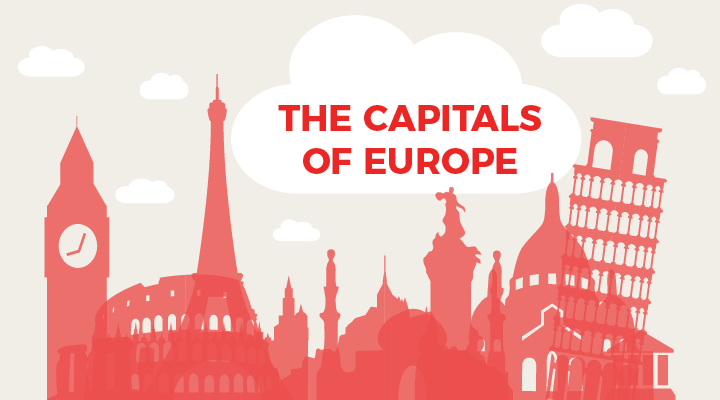When the Sherman Brothers wrote, “It’s a small world after all” for Disney, they probably never dreamed that it would (arguably) become one of the most widely used phrase in the world. It is a small world indeed, and it very likely it won’t be long before you pack your bags for your next holiday or trip abroad.
When you do start contemplating the map for travel inspiration, think about picking one of the following countries with their ‘quirky’ phrases and slang that will amuse, befuddle and even confuse you! These will really test your knowledge of the ‘native, local’ language…
Japan
It is impossible to translate Japanese culture and thought in a small space, however, we can attempt to translate one unique saying! Nanakorobi ya oki in original Japanese literally translates as “Fall seven times, stand eight”. No, it is not a dance routine, but actually means to get up no matter how often you get knocked down.
Such a resilient spirit is valued in Japan, where individuals are encouraged to not complain, but rather silently pick themselves up after they have been knocked down. If you’re young and kawaii (meaning cute, pronounced like Hawaii, but with a long and piercing stress on the last syllable), you can get away with most things!
Australia
Our friends Down Under certainly have a different way of saying things! You might find yourself at a loss when your couch-surfing host’s friend says, “Hey mate, let’s have a barbie in the arvo”. Don’t be alarmed; it simply means he’s inviting you to sizzle up a barbecue in the afternoon. If you have plans for the day, you can always respond with, “Sorry mate, I’m flat out like a lizard drinking”. What you’re saying is, you’re busy like a lizard when it’s lapping up water.
Mongolia
So you’ve just landed in Mongolia and met your localhost. You’ve been battling a cold virus for a while, and can’t avoid a sneeze. Your friend then says, burkhan orshoo butin chinee sakhal urga. If you understand a few Mongolian words, you are bound to be confused. What your host has just said literally means – “God bless you and may your moustache grow like brushwood.” It sounds especially strange as neither you or your host has a moustache!!
What does this polite Mongolian response to a sneeze have to do with moustaches? Well, if you’ve seen pictures of Genghis Khan, you can tell that Mongolians were serious about their moustaches and this interest made its way into a blessing for a sneeze. However, these days, the second part of the proverb is rarely mentioned, especially not to women!
Norway
If you’re in Norway, en rosin i pølse or “a raisin in the sausage” can have very strange connotations! How could raisins ever improve a sausage? In fact, raisins seem to have no purpose other than act as substitutes for chocolate chips in cookies when you’re looking for healthy eats. Right?
Norwegians think otherwise. For them, en rosi,n especially when it’s i pølse is a pleasant surprise. It’s something that makes what’s already good a lot better. The Gilde meat products company also sells its own version called rosin i pølsa. That’s no surprise if you know Norwegian culture, which has a recipe for sweet soup with dried fruits, called “Sot Suppe”. Do find out if you like it on your next holiday there.
Malawi
If you’re in Malawi and you’re looking at the map to get around, you’ll be thoroughly confused. The map is really useless there. Lilongwe, the capital of Malawi, is called Ls by the locals. If you ask for directions to Blantyre, you’ll find some people looking at you blankly. You should instead ask for BT. Interestingly, the locals call Zomba, Texas.
Chewa also is known as ‘Chichewa’, is a common language spoken by the people of Malawi. It is known as the ‘language of the lake’, referring to the Lake Malawi. Arm yourself with some local language, words and phrases, and you’ll have an easier time navigating the country.
South Africa
If you hear epic fail in South Africa, you’re likely to be surprised. It’s used more often there than you’ll ever hear it in the United States. On the other hand, if you hear someone say “hectic”, don’t nod your head. They could be referring to a T-shirt or a dance club. And “now” in South Africa does not mean this moment, but eventually!
France
In France, if someone says their friend “avoir les dents longues”, they literally mean “long in the tooth”. What’s curious about the translation is that while the original French phrase refers to someone who is ambitious, the English translation has its own meaning. Someone who is “long in the tooth” in English is someone who is getting on in years.
We would love for you to share some of your native quirky native language sayings and phrases in the comment box below.
So, which quirky language are you going to learn for your next holiday? Let us know in the comments section below.
Andrie Steliou
Latest posts by Andrie Steliou (see all)
- 8 Ways to Help Keep Your Child Focused and Engaged in Online Learning - October 19, 2022
- How to Improve Social Intelligence Skills? - May 10, 2022
- How to Improve Organizational Skills at Workplace? - May 6, 2022

